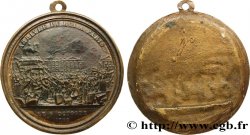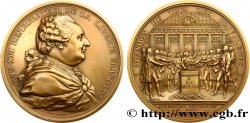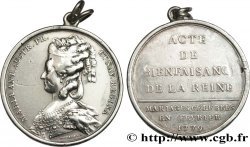fme_677016 - LOUIS XVI Médaille, Premier vol en aérostat des Frères Montgolfier, refrappe
90.00 €(Approx. 96.30$ | 77.40£)
Quantity
Add to your cart

Type : Médaille, Premier vol en aérostat des Frères Montgolfier, refrappe
Date: (1783)
Metal : bronze
Diameter : 41 mm
Orientation dies : 12 h.
Engraver GATTEAUX Nicolas-Marie (1751-1832)
Weight : 33,76 g.
Edge : lisse + corne BRONZE
Puncheon : corne BRONZE
Coments on the condition:
Patine hétérogène, quelques taches et traces de manipulation dans les champs. Traces d’un léger nettoyage au revers. Petite usure sur les reliefs
Obverse
Obverse legend : JOSE. ET. ETIEN. - MONTGOLFIER// POUR AVOIR RENDU L'AIR NAVIGABLE.
Obverse description : Têtes accolées de Joseph et Etienne ; signé N. GATTEAUX sur la tranche du cou.
Reverse
Reverse legend : ATTONITUS ORBIS - TERRARUM // À L’EXERGUE : ITINERE PER AURA FELICITER / TENTATO ANNO / MDCCLXXXIII.
Reverse description : Vue sur le ballon s’envolant, son feu alimenté par un génie assis sur une nuée. Au sol, l’allégorie de la France assise contre un lion. Signé : GATTEAUX.
Commentary
Cette médaille a été réalisée d'après le modèle de Jean-Antoine Houdon (1741-1828) par Nicolas Gatteaux qui est Graveur du Roi depuis 1781. Le revers commémore l'ascension du premier aérostat le 27 août 1783 devant le Champ de Mars à l'instigation de Joseph (1740-1810) et Etienne (1745-1799) de Montgolfier qui collaborèrent à l'invention du ballon à air chaud. Ce jour là c'est la première ascension d'un ballon à hydrogène lancé par Charles (1746-1823) et les frères Nicolas Nicolas-Louis dits Robert le Jeune (1761-1828) et Anne-Jean Robert (25 kms). Médaille incontournable pour qui s’intéresse aux avions et aux transports aériens en général.







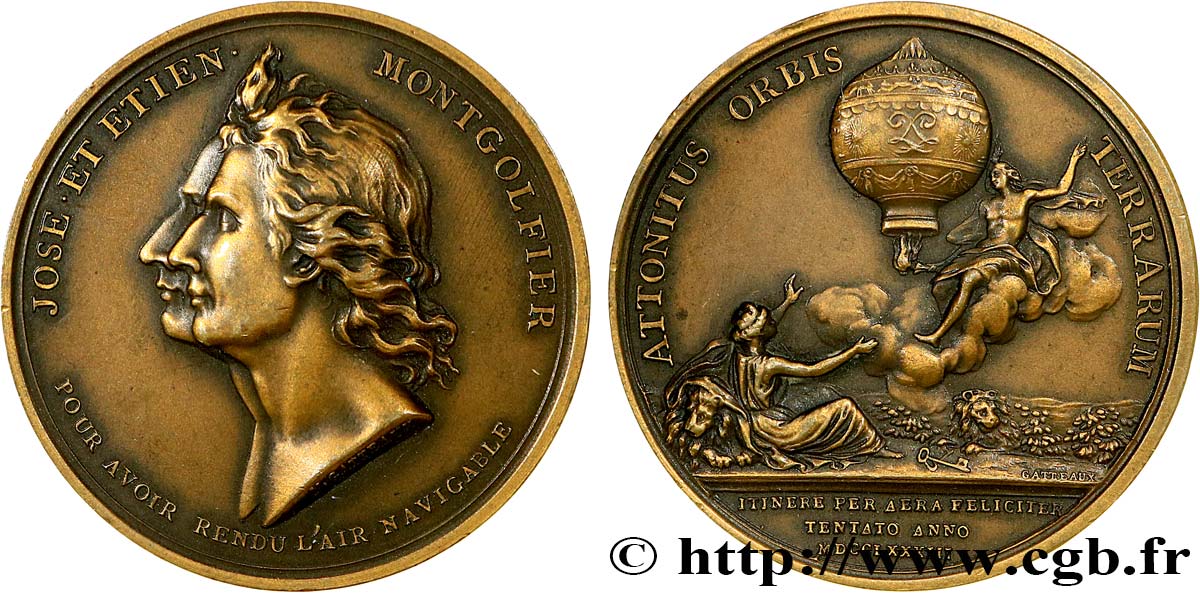
 Report a mistake
Report a mistake Print the page
Print the page Share my selection
Share my selection Ask a question
Ask a question Consign / sell
Consign / sell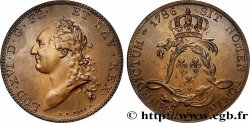
 Full data
Full data
